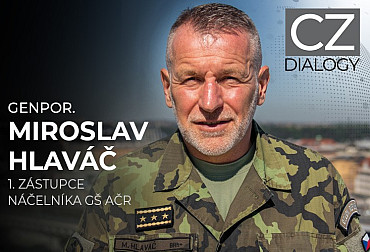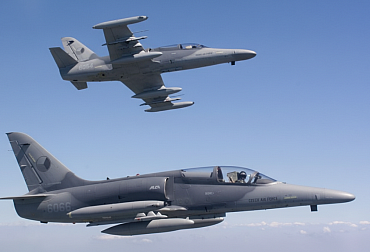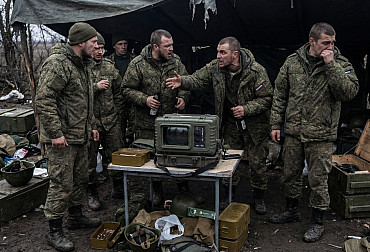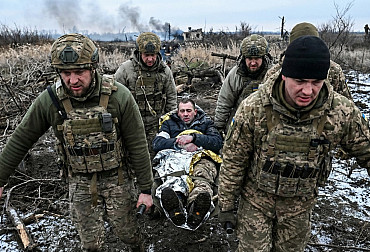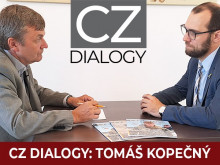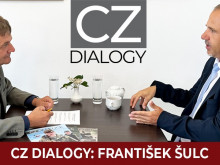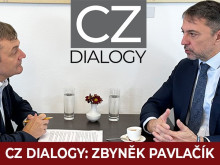Colonel Otakar Foltýn: Defence of the state is a matter for everyone, not just soldiers
The Military Police (MP) is an integral part of the security forces of the state. In the period of our EU Presidency, the military police perform many tasks. Moreover, the current security situation is also placing new demands on the Military Police. According to its chief, Colonel Otakar Foltýn, this primarily means increased security of objects, compliance with operational security and standard reinforcement in the area of tasks that the Military Police is responsible for, which includes police security of the Army of the Czech Republic and security of ammunition depots, etc. For these reasons, Colonel Foltýn is also working on increasing the "green competence" of the Military Police. "This means direct support of the Army of the Czech Republic. Almost 90% of the Military Police's capacities are actually devoted to the doctrinal tasks of the Military Police, i.e. support of the Army, and only about one tenth of them are the activities of the criminal service. In the current security situation, we need to support the standard tasks of the Military Police, which is policing the Army," Colonel Foltýn said in another episode of our CZ DIALOGY discussion programme.
Video: Interview with Chief of the Military Police Colonel Otakar Foltýn / CZ DEFENCE
According to Foltýn, the ability of individual units to work together is also an important element for the successful work of the MP. The new security situation has set priorities that have been incorporated into joint exercises with the Army at the staff level. These include meeting standards similar to those in Western countries, i.e. World Protection, police protection of troops, and troop movements. However, they also perform very important tasks in the field of stabilisation operations. "When the situation in a particular destination is stabilised and a combination of military and police capabilities is needed, stabilisation operations are the business of the Military Police," says Chief Foltýn.
The current situation in Ukraine has a significant bearing on the current work of the Military Police. The recent incident on the Polish border has shown the fragility of the security situation in Europe, and the Military Police are therefore undertaking all activities that will help eliminate similar security risks. "In Norway, for example, a Russian citizen was detained on the Norwegian-Russian border some time ago, carrying quite sophisticated drones and memory cards with several gigabytes of data on Norway's key infrastructure. And this was far from the only incident of this type, and it is already our competence in this particular area," Foltýn explains. As part of the security of the crisis infrastructure, the military police focus mainly on supply sections for civilians, for ammunition, but also any other objects important for the defence of the state that the MP guards. As a result, it is about securing security models that will ensure that a situation like the one on the Polish border does not occur. The military police as one of the security forces contributes to the overall information picture. To do this, it is necessary to use special means, data collection and drones, and therefore it is necessary to amend the legislation. This year, Act No. 300/2013 Coll. on the Military Police was amended, which increases the competence of the Military Police towards foreign troops operating or passing through the territory of the Czech Republic with the consent of the Czech Republic. However, for the optimal operation of the Military Police, a comprehensive (major) amendment to the Act on the Military Police, which will modify some competences, is more essential. "These include controlling compliance with the ban on photography at military objects, the use of unmanned aerial vehicles and other changes," Foltýn described.
The Military Police is also plagued by similar ills as the Army, namely the age of its officers, their shortage and strict recruitment standards. "We have set the standards for recruitment quite high. We require above-standard both physical and especially psychological tests," Colonel Foltýn explains. The departure of some officers to civilian life does not contribute to personnel stability. The management of the Military Police also faces the difficult task of increasing the number of officers proportionally to the increase in the number of soldiers in the Army.
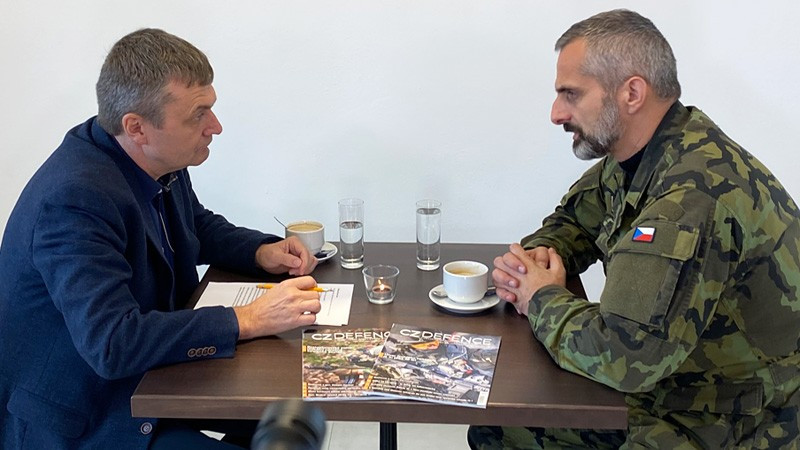 Picture: Colonel Otakar Foltýn, Chief of the Military Police, accepted the invitation to our discussion programme CZ DIALOGY | Michal Pivoňka / CZ DEFENCE
Picture: Colonel Otakar Foltýn, Chief of the Military Police, accepted the invitation to our discussion programme CZ DIALOGY | Michal Pivoňka / CZ DEFENCE
An important moment for the overall stable security situation is also the link between the armed and security forces and the ability of citizens to actively participate in the possible defence of the state. And here Colonel Foltýn is sceptical. On the one hand, he believes that soldiers and police officers have a high level of trust in citizens, but there is a difference between trust in the Army and trust in the state. Colonel Foltýn agrees with the legal theorist Professor Přibáň that people do not trust the state and its institutions. "In fact, the Army is the only branch that does not exercise any competence over you in peacetime. It cannot do anything to you. It does not concern you and it is not a basic military service. No one is forced to be a soldier," Foltýn said. The prestige of the military, on the other hand, increases when deployed in various disasters such as floods, pandemics and the like. "Trust is simply due to the fact that citizens choose the state institution that actually affects their lives the least, which is the military. And that would change fundamentally in a state of national emergency and a state of war," Foltýn says. Again, the Ukrainians are a case in point, as without the support of the local population, the Ukrainian Army could not have successfully countered the aggressor in the long term. War can take very different forms, including diversion, subversion or attacks in cyberspace. "To be honest, I don't believe that the majority of the Czech population would be willing to defend their country as intensively as the Ukrainians," the MP chief says. According to him, the reason for this statement is the lack of education, reference to historical traumas and fangirling instead of patriotism. In this regard, Foltýn sees the need to educate citizens more about their relationship to their homeland and its symbols. All previous conflicts have shown that there have always been not a few people in our country who were willing to risk everything for the homeland, including their own lives, which the MP chief believes is a good basis for others to understand. "We should explain it to those who are swimming in it, not sure. Or maybe they don't have the time, the background. In fact, it would be enough to follow what Masaryk said: patriotism is love for one's own nation, not hatred for others. So let's learn how to work with this positive emotion," says Military Police Chief Colonel Otakar Foltýn.
During the interview, which you can watch above, we also touched on the technical equipment of the MP, new technologies, the development of cyber capabilities, social networks and many other issues.











